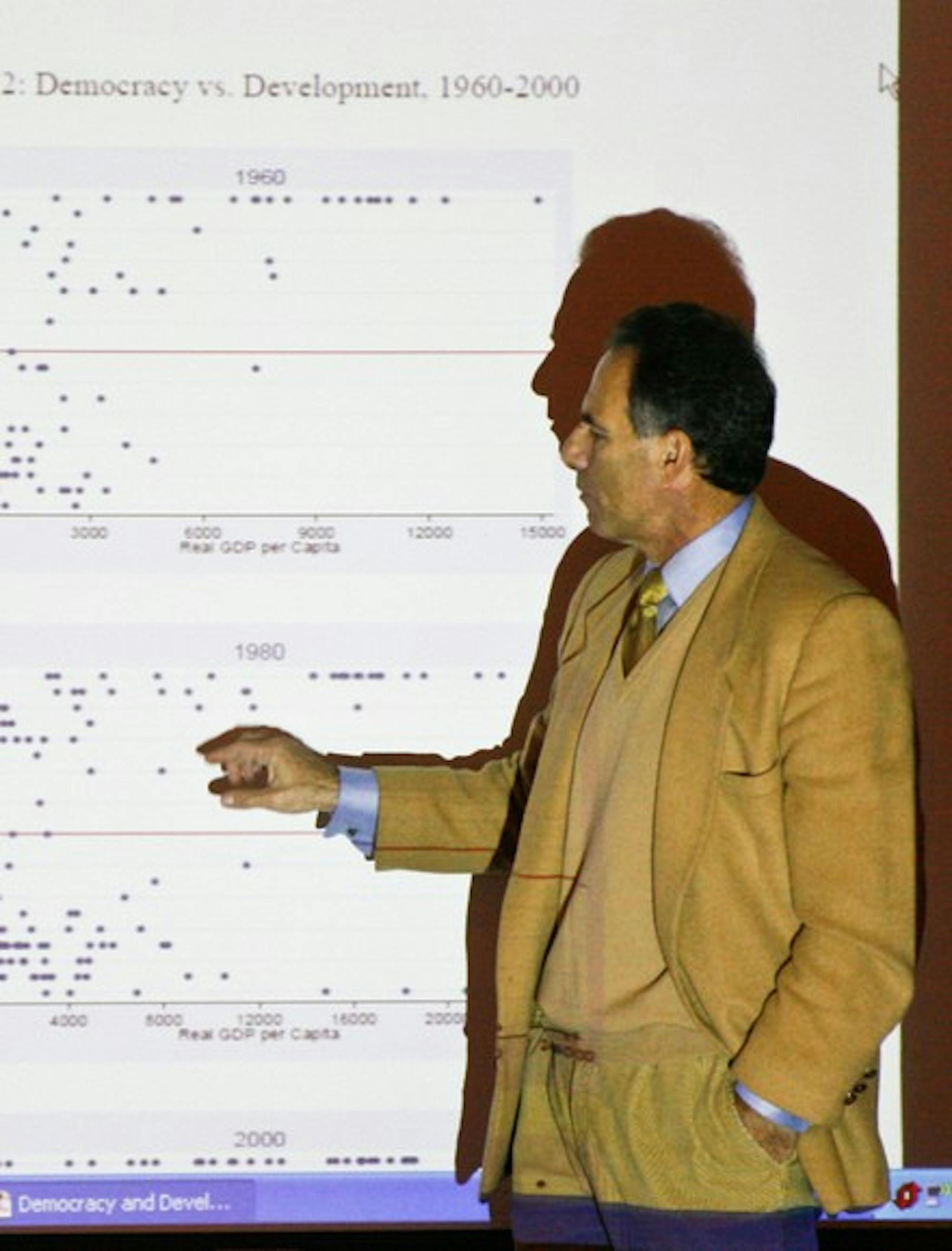A country's economic development depends on the number of opportunities people have to meet their needs in that country's economic market, Goldstone said. He argued that the number of opportunities available is not determined by whether the country is a democracy and warned that increasing the range of opportunities takes time.
The existence of a correlation between democratic nations and economic growth, one of the most established relationships in social science today, is generally accepted because economists have not examined data exploring incremental change or pathways to prosperity, he said. Goldstone presented graphs showing different countries' shifts between authoritarianism and democracy and data about average gross domestic product per capita through time to show that there is no such direct correlation.
"It is not the case that in those snapshots, correlations between democracy and development reveal a single population that is moving from low income and authoritarian to a high income and democratic," he said.
Instead, a trend emerged from the data that pointed to two distinct categories, according to Goldstone.
"These graphs show some countries that move from authoritarian to democratic frequently, but have no real economic change," Goldstone said, citing Peru and Chile as examples. "Another population consists of countries that have been stably democratic, that have just gotten richer."
Goldstone attributed the accepted notion that democracy results in economic growth to the fact that many authoritarian regimes are generally hierarchal and make economic growth difficult by establishing an elite group of leaders that prevents a functioning free market. Democratic nations, on the other hand, tend to be more "polyarchical" so people rely less on higher power and are given the chance to compete in a private sector, he said.
Given these tendencies, an observer could conclude that there is a direct correlation between democracy and economic growth, but this view ignores the underlying social factors, according to Goldstone.
"When authoritarian countries become a democracy, most of the time they simply become a fractured polyarchy, and within five to seven years, this structure leads to corruption and lack of organization in the government," Goldstone said. "The democracy then eventually breaks down and returns to an authoritarian regime."
As a result, these countries are stuck in a shift between authoritarianism and democracy, but cannot change their economic status, he concluded.
Goldstone supplemented his findings with his recollection of a recent trip to China, where he noticed that the nation is shifting toward a polyarchical society, where the citizens feel liberated. Members of the middle class are making more decisions, such as choosing a job or a home. Although it is not a democracy, China is still moving in the direction of prosperous development and growth, Goldstone said.
Goldstone is the director of the Center for Global Policy at George Mason University. Goldstone's lecture, "Trajectories of Democracy and Development: New Insights from Graphic Analysis," was the final speech in this term's Reitman/DeGrange Memorial Lecture Series, which is sponsored by the department of sociology.




